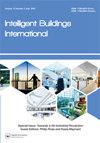Towards a 4th industrial revolution
IF 1.7
Q2 CONSTRUCTION & BUILDING TECHNOLOGY
引用次数: 27
Abstract
ABSTRACT The Fourth Industrial Revolution refers to the technological transformation society is undergoing in the 21st Century. This paper explores how technologies such as Artificial Intelligence (AI), Internet of Things (IoT) and autonomous vehicles are increasingly merging with human lives and creating a radical shift for employees, organisations, and society as a whole. Work and the meaning of work are revolutionising as technology matures and organisations are driven by digitalisation and smart ecosystems. This shift will require a balance between technological innovation in the workplace with new jobs and employment concepts. The technologies driving the Fourth Industrial Revolution are changing the demands and expectations of the buildings and cities we work and live in. The next industrial revolution will move on from ‘smart buildings’ and ‘smart cities’ to the beginning of autonomous, intelligent, and sentient urban infrastructure. This paper presents the challenges and opportunities that the Fourth Industrial Revolution presents. It ultimately concludes that the Fourth Industrial Revolution is a catalyst of change that will disrupt how we communicate, learn, behave, and relate to each other and our surroundings and it presents an optimistic view of the opportunities for change.走向第四次工业革命
第四次工业革命是指21世纪社会正在经历的技术变革。本文探讨了人工智能(AI)、物联网(IoT)和自动驾驶汽车等技术如何日益融入人类生活,并为员工、组织和整个社会带来根本性转变。随着技术的成熟,以及数字化和智能生态系统对组织的推动,工作和工作的意义正在发生革命性的变化。这种转变需要在工作场所的技术创新与新的工作和就业概念之间取得平衡。推动第四次工业革命的技术正在改变我们工作和生活的建筑和城市的需求和期望。下一次工业革命将从“智能建筑”和“智能城市”转向自主、智能和有感知的城市基础设施。本文介绍了第四次工业革命带来的挑战和机遇。它最终得出的结论是,第四次工业革命是变革的催化剂,它将颠覆我们的沟通、学习、行为以及与他人和周围环境的关系,并对变革的机会持乐观态度。
本文章由计算机程序翻译,如有差异,请以英文原文为准。
求助全文
约1分钟内获得全文
求助全文
来源期刊

Intelligent Buildings International
CONSTRUCTION & BUILDING TECHNOLOGY-
CiteScore
4.60
自引率
4.30%
发文量
8
 求助内容:
求助内容: 应助结果提醒方式:
应助结果提醒方式:


